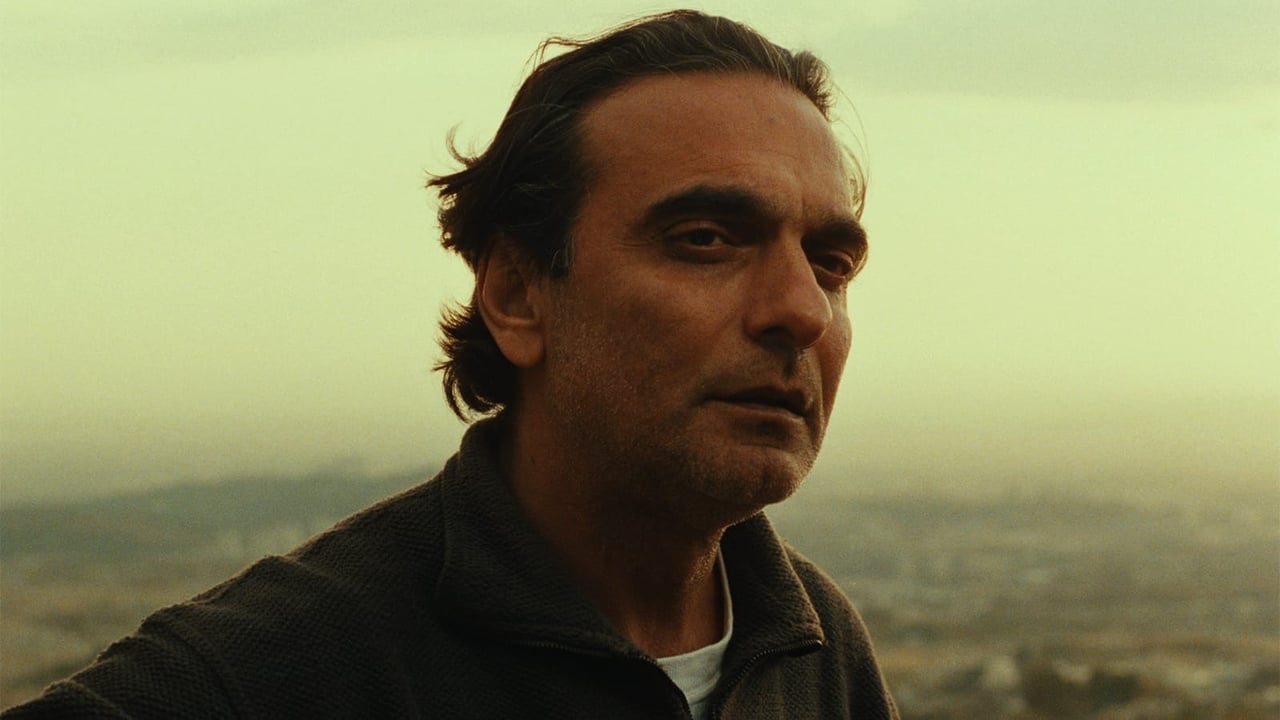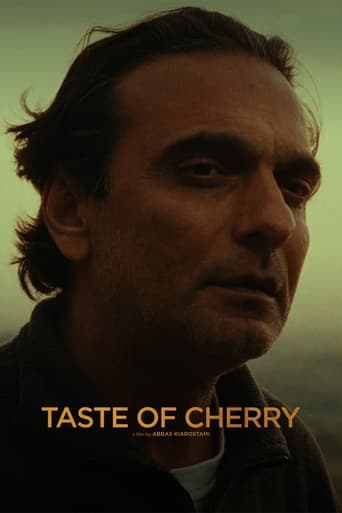Afouotos
Although it has its amusing moments, in eneral the plot does not convince.
Keira Brennan
The movie is made so realistic it has a lot of that WoW feeling at the right moments and never tooo over the top. the suspense is done so well and the emotion is felt. Very well put together with the music and all.
Blake Rivera
If you like to be scared, if you like to laugh, and if you like to learn a thing or two at the movies, this absolutely cannot be missed.
Skyler
Great movie. Not sure what people expected but I found it highly entertaining.
Vonia
Taste of Cherry (Iranian: Ta'm e guilass) (1997)
Understated film,
Searching for his Doctor Death,
Questions our morals,
The philosophies of life.
Quotable, much to ponder. Better as a book,
Endless car conversations,
More bored than impressed.
Never get to know Badii.
Maybe if he told us why. Somonka is a form of poetry that is essentially two tanka poems (the 5-7-5-7-7 syllable format), the second stanza a response to the first. Traditionally, each is a love letter and it requires two authors, but sometimes a poet takes on two personas. My somonka will be a love/hate letter to this film?
#Somonka #PoemReview
Christopher Culver
In Abbas Kiarostami's 1997 film Ta'm-e gilas (Taste of Cherry) one Mr. Badi, a man about whom viewers learn virtually nothing, drives around Tehran looking for someone to do him a favour: that night, he will kill himself in a quarry outside the city, and he wants someone to cast dirt over his body the next morning.The first half of the film is essentially about Mr. Badi's difficulties finding someone to carry out this small task, in spite of the substantial amount of money he's offering. He is initially mistaken as a homosexual cruising for sex, a misunderstanding that Kiarostami even ribaldly encourages Through suggestive dialogue. A seminary student refuses to help him because suicide is a sin. I must say that I was very disappointed by these 40 minutes plus. Shooting so much of the film inside the car as Mr. Badi drives around is a waste of the possibilities of cinema. Furthermore, there is no real rapport between Mr. Badi and the various actors, as it was originally Kiarostami sitting in the passenger seat, and the dialogue of the men Mr. Badi picks up was only dubbed in later. The film does largely rely on amateur actors, as is common in Iranian productions from this era. Mr. Badi is played by the architect Homayoun Ershadi, and though Ershadi eventually established a film career, this was his first role.The film does become stronger in the second half, when Kiarostami starts to move from the dusty and barren quarry to more lively scenery of inhabited Tehran, a clear metaphor for the joy and colour of life that Mr. Badi would be giving up if he went through with his plans. The film starts to be thought-provoking instead of merely awkward, and as a glance at discussion forums will show, the film does offer enough to keep cinephiles talking about it. Unfortunately, the ending that Kiarostami chose for the film (which I won't spoil here) feels to me like a cop-out, not to mention something that is already an old auteur trope by now.If you like the Iranian Second Wave, then you'll probably find it worthwhile to see Ta'm-e gilas at least once. However, in spite of its winning of the Palme d'Or, I do not feel this is an especially great film.
TheMarwood
Man drives around trying to find someone to bury him after he commits suicide. The film crew shows itself at the end. The picture goes on to win the Palme d'Or. Critics and film enthusiasts proclaim it's a work of genius. I hate it. I really hate this boring, indulgent film. But I accept I am in the minority and have nothing to add in my criticism except disdain for it. It didn't move me, when I know it moved others. It means nothing to me except being the pinnacle of tedium, when it means much more to many others. I can't think of a film I dislike more than The Taste of Cherry, but even after 15 years, I still haven't forgotten it.
manendra-lodhi
Abbas Kiarostami has his own language of cinema. The story will look to be great when you will read a synopsis somewhere (actually it is great) and you will know already that it is going to be slow. The story is about a man searching for someone to bury him after he dies. Well he is going for a suicide. In his search he meets a lot of people. The film depicts his meet with them. What you are going to see are questions about right and wrong.PROS: The film has an intriguing subject. The screenplay however does not have charming twists or anything like that which will keep you on edge of the seat. The car is moving through a path and you hear and think about the dialogs. You have a lot of time in the film itself to watch and think of what the person feels. The film is not made for a commercial audience. It is made for the purpose of explaining some situation. You cannot expect excitement in these films. It takes you through the dilemma of a man while he is trying to find a person to bury him. Another thing to focus on is the different types of people that he meets. There are moments when you will feel that the real reason to make the film is exploring human behavior, his ideas. It's not that you'll get entirely bored but if you are a patient viewer than you will slowly get to the root of the film.CONS: The character of the lead actor was explored from a different angle and it would have been good if we were given an insight in his past life. It is OK that the main focus of the film is to explore human nature but the man is trying to do this thing and his character will look confusing to the audience because they don't know enough about him.VERDICT: "Commercial viewers should refrain."

